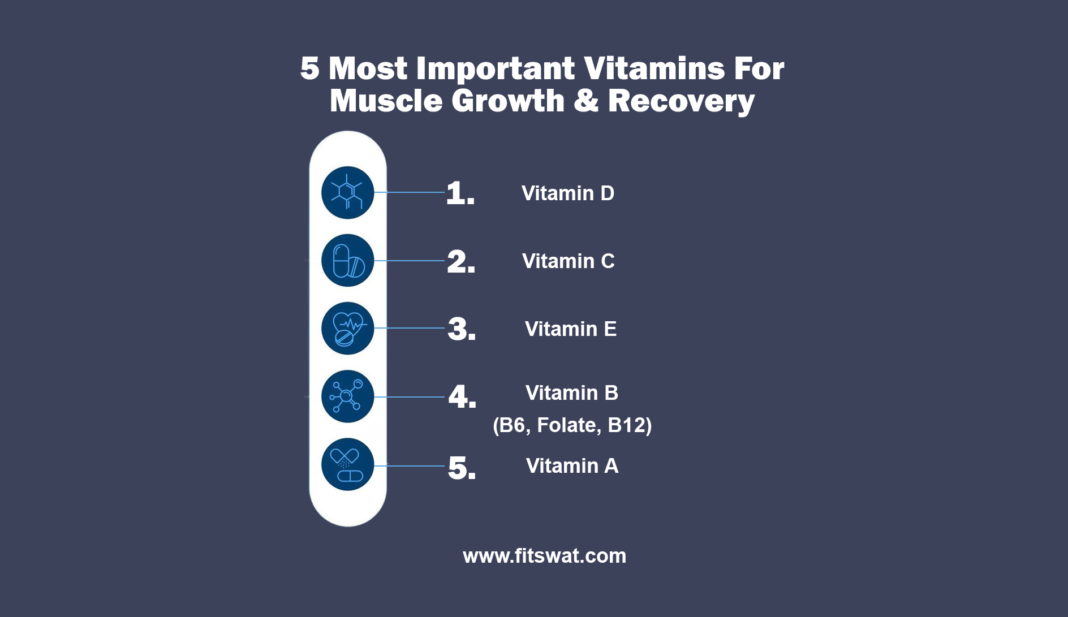Muscle growth and recovery are crucial aspects of maintaining a healthy and strong body. While exercise and proper nutrition play a significant role in achieving these goals, vitamins also play a pivotal role in supporting muscle health. In this article, we will explore five of the most important vitamins that aid in muscle growth and recovery without any plagiarized content.
Vitamin D:
Vitamin D is a fat-soluble vitamin that supports muscle health in several ways. It plays a vital role in enhancing calcium absorption, which is essential for muscle contraction and function. Furthermore, Vitamin D has been shown to improve muscle protein synthesis, thus promoting muscle growth. Exposure to sunlight is a natural way to obtain Vitamin D, and it can also be found in fatty fish, fortified dairy products, and supplements.
Vitamin C:
Vitamin C is a powerful antioxidant that aids in protecting muscles from oxidative stress caused by intense physical activity. During exercise, the production of free radicals can damage muscle tissues, leading to inflammation and delayed recovery. Vitamin C helps neutralize these harmful free radicals, reducing muscle soreness and supporting faster recovery. Citrus fruits, bell peppers, and strawberries are excellent sources of Vitamin C.
Vitamin E:
Similar to Vitamin C, Vitamin E is another potent antioxidant that contributes to muscle repair and recovery. It protects cell membranes from oxidative damage, reducing inflammation and promoting optimal muscle healing. By maintaining the integrity of muscle cells, Vitamin E supports overall muscle health. Nuts, seeds, and vegetable oils are rich sources of Vitamin E.
Vitamin B (B6, Folate, B12):
The B-vitamin group, including B6, Folate, and B12, is essential for energy metabolism and red blood cell production. During exercise, these vitamins help convert carbohydrates, fats, and proteins into energy, providing the fuel necessary for muscle performance and growth. Additionally, they play a role in repairing and rebuilding muscle tissues post-workout. Foods such as lean meats, poultry, fish, leafy greens, and fortified cereals are abundant in these B-vitamins.
Vitamin A:
Vitamin A is crucial for maintaining healthy muscles, as it contributes to protein synthesis and supports immune function. During intense physical activity, muscles can experience micro-tears that require repair and regeneration. Vitamin A aids in this process, allowing muscles to recover efficiently and grow stronger. Foods rich in Vitamin A include sweet potatoes, carrots, spinach, and liver.

